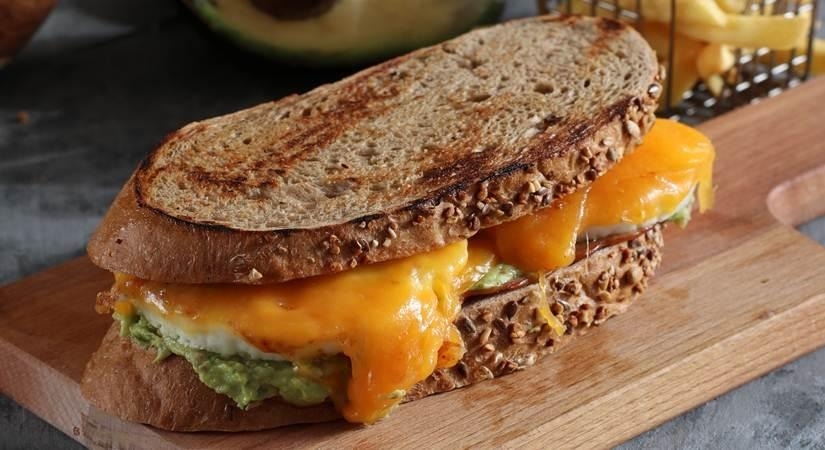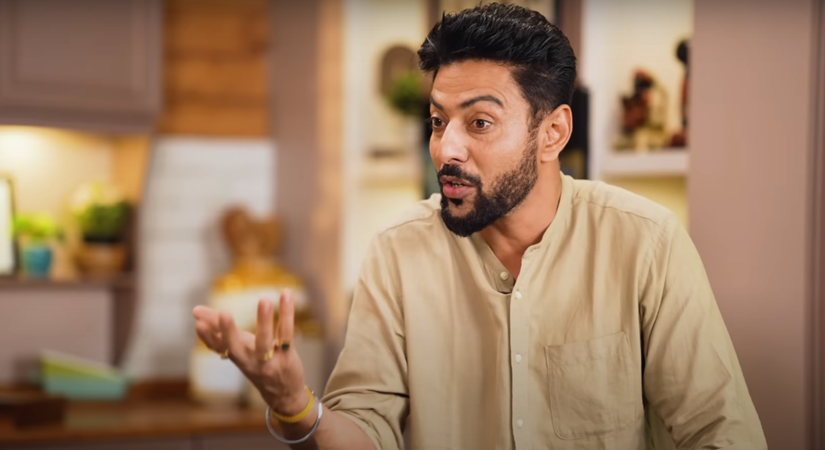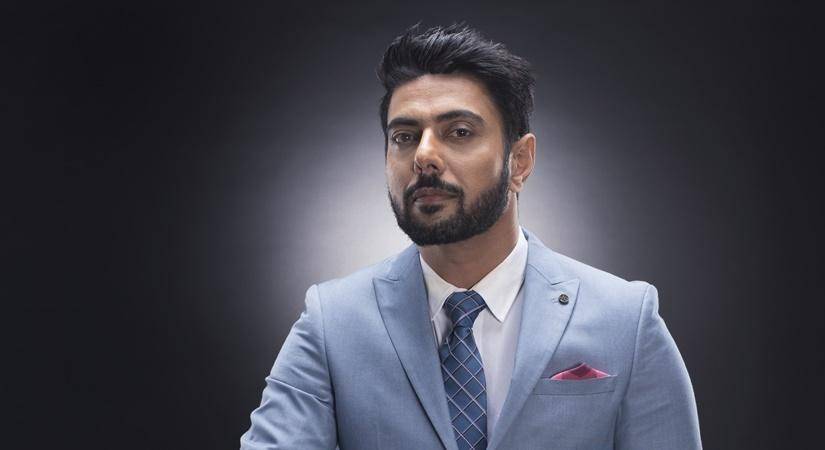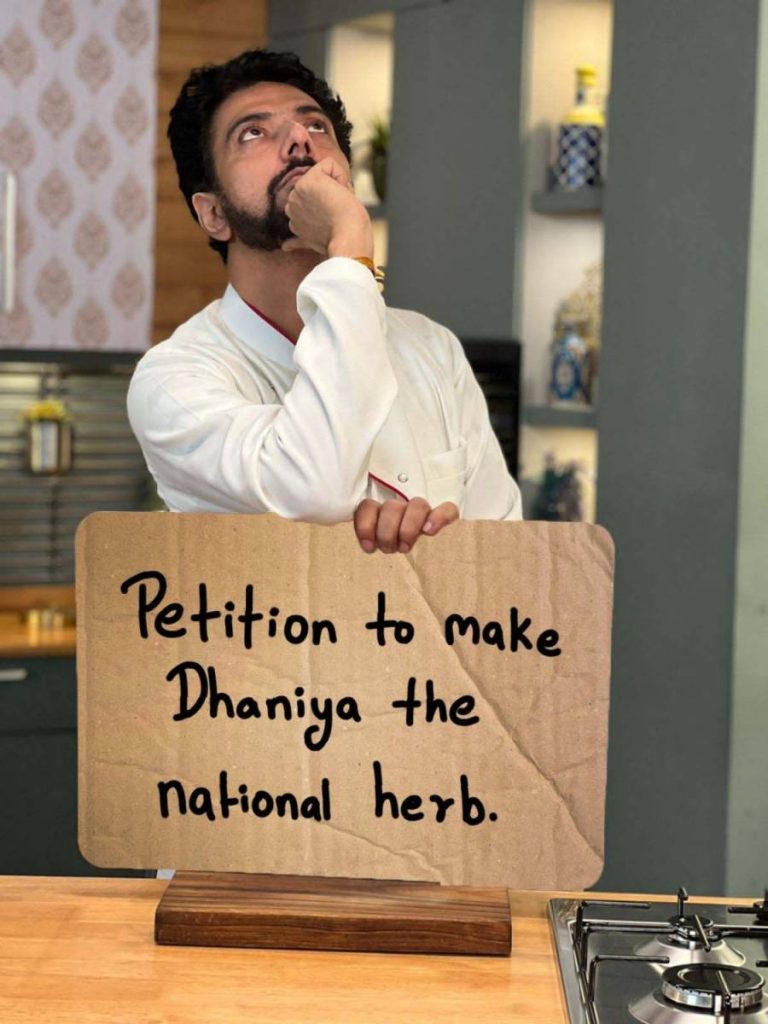The restaurant did well initially, but then the recession set in. When you open a restaurant you cannot just email and get things done, you know, you gotta be a lot more hands-on. I had to make that transition….Ranveer speaks with Krishna Mehta
A small-town boy who went on to become the youngest executive chef in India, at the age of 25, was extremely dedicated to the craft of making quality food; he set on his journey with nothing but an honest effort. From being a world-class chef to now a public figure with a massive following on his YouTube Channel, a gourmet storyteller with the mind and hands of a cook.
Sharing his childhood memories, his learnings, the divinity associated with him being a cook, and how he found a perfect partner and an even better cook in his wife, Ranveer Brar speaks magic.
Now with his multiple acting projects coming along, and building a career as a chef globally while maintaining a balance as a husband and a father, the episode of Ranveer Brar’s chat with Karishma Mehta in the “How The Hell Did I Do It?”, a Humans of Bombay Original Talk Show is simply awe-inspiring.
Mehta: It all began in Lucknow, which you mentioned has a very special place in your heart because Streets of Lucknow is where you discovered your calling or your passion. Can you tell us a little bit about that, about your childhood?
I’m very proud of my small-town roots, I think, I always say, small towns, chhote shehar jo aapko ek jazba dete hai, aur ek fight jo aapke andar dete hai, ek rebel jo aapke andar zinda rakhte hai, woh bade shehar nahi kar sakte, ( the attitude, the fight the ambition and the aspirations a small town give you, can’t be found in a big city) and for me, that’s what Lucknow stood for.
It stood for challenging everything that you saw. It also stood for the time that people have towards the finer things in life, like food, poetry, and dance. Whether you like it or not, growing up in a city like Mumbai, you’re always a part of a hustle. And sometimes I look at my son and I realise, if I don’t stop running, subconsciously, he’s just going to start running with me.
And small towns, give you a different kind of hustle. They give you the hustle to break away from the rat race, rather than be a part of it. And I think that, is what Lucknow has given me. And as I said, I’m also proud of being a small-town kid. There is this big iron which is leveling our (big) cities. All the cultures are sort of becoming a multicultural ensemble – whether it’s Bangalore or Mumbai or all big cities. (They) are becoming this leveled, multicultural, similar looking, similar energy, sort of a vibe. Small towns have a singular culture and a singular energy and a different energy. They don’t like being leveled. They have a character – Hyderabad ka ek character hai and they wanna keep it like that, Lucknow ka ek character hai. So the importance of fighting for the character that you have and who you are is also a very small-town thing.

The smaller the town, the bigger the fight not to be leveled out and just be made into another, lowest common denominator of culture.
Mehta: Walk us through your, the first time you made a dish and fed it to your family. What was that experience like?
So the first time actually I made a dish was not for the family, it was in the Gurudwara. As a kid, my grandfather used to drag me to the Gurudwara. He was an ex fauji. And his unit, even though it retired, his unit Gurudwara was a 20-minute cycle ride. Every Sunday, that fauji culture of going to the Gurudwara, he couldn’t get off it and he needed some company.
He used to take me, behind the cycle. Then as a kid, how long will you sit with your hands folded inside a Gurudwara, right? So I used to go around, play around and they said, “nahi, boundary ke bahar nahi jaana, kho jaayega”
So there was this place where we used to cook Langar. I found my comfort. I sit and watch them cook, more for just being away from, haath jod ke na baithna pade. Yaha pe jyaada se jyaada kya hoga, yahi bolega na, yeh laa de, laa denge.
That’s how I got there. I never cooked. It was just good fun seeing a lot of action. You are in the middle of the action, not having to sit inside. And then one day they asked me to cook because the lady used to cook gud waale chawal, she’d gone to visit her mother. They said, “He can make it right?” Because he’s seen it for so many years. And I wasn’t really confident because I’d only seen it. But then I made it for the first time and it turned out fairly decent. Again, I think it’s just the repetitiveness of seeing it so many times. Every Sunday for three years, four years, if you see the same thing being made, it sort of registers in the subconscious. Thoda woh tha, and thoda, I always believe it was the moment and the place where you’re cooking. When you’re cooking a Gurdwara, things become a little more divine. So that Gud wale chawal was the first thing I cooked. My dad still calls me a Langari because you know, I started with Langar.
Mehta: Did you continue to cook even after, at the Langar?
I did. I think till 13-14, I was very active. Initially, you go there because it’s a habit. Later you go there because you get greedy. Ye maang leta hu, arre mera ab board aane wala hai, main chala jaata hu thod. Let me just continue that. You later become greedy because you want things from God.
So then later that relationship developed of wanting things. Every Sunday, go and ask for something. Agla exam, then the next one. And then again, so because you had a familiarity with the people who were cooking rather than the people who were inside. So you eventually, aap maathha tek ke bahar hi aajaate the, langar mein help kar dete the. So that’s how it continued after my grandfather passed away. The connection to the Gurudwara stayed. Then break ho gayi, because you were into education. Then it started again in Delhi when we started off with the Taj, in 1998 at a salary of 3,612 rupees. We were HoMTs management trainees. So we used to end up with no money by the 15th day of the month. Then, I started going back to the Gurudwara. Initially I used to go there because we had no money, so we used to eat in the Langar.
And then later on, we also started feeling bad. Yaar hum log chef hai, free mein khaane ke liye baith jaate hai har mahine, so then I gradually went back to cooking. Kabhi daal bana di, Kabhi Sabzi bana di. That was a big Gurudwara. 1000 -1200 logo ka khana banta tha. But then you’d also grown bigger and now you are doing this professionally also. So it was easier. That’s when I sort of completed the circle. It’s very funny you asked me that because now it’s just all coming back. So that’s when I connected to this cooking in the Gurudwara and what it really meant to me. And then again, you got busy with your life.
And then I moved to the US. And Gurudwara wasn’t really a part of my life. There were other things to do, and then when everything tanked. Things weren’t doing well for me. My restaurant tanked, and I really had no money, so I had to go back to eating in the Gurudwara again.
Mehta: Did entrepreneurship come to you naturally or is it something that, again, you just went and put in the hard work, hustled, and got through that?
My entrepreneurship journey started when I moved to the USA in 2004, 2005. It did not come to me naturally. I think, you know, you’re an artist and a professional first, and when you’ve been an artist and a professional for a really long time, entrepreneurship isn’t the first, isn’t the easiest transition.
I think what I felt was, you know, whatever you were doing in India was great. You were an executive chef in a five-star hotel. You were looking at multiple hotel kitchens and all that but you started off with a certain relationship to food, which is cooking it yourself. I wasn’t getting enough to cook it enough and that’s why I thought, okay, let me just go back to a restaurant, running a restaurant. Because then you can sort of cook it yourself. Go back to understanding with the whole touching, moving, and inspiring bit. And that’s what I did. So I partnered in a small restaurant. We said, we’re gonna set it up. I was just happy that I was cooking again and that was the motivation to go to the US.
The restaurant did well initially, but then the recession set in. When you open a restaurant you cannot just email and get things done, you know, you gotta be a lot more hands-on. I had to make that transition. It took me some time to make that transition. Also, you were cooking for a different culture with a different background and you know, so for me, there was a huge learning.

It was a learning that I would, I was not ready for and so I did not really adapt well to it in the first couple of years till I actually realized that I wasn’t probably as good as I thought. And I need to step back, stop, understand who I am and what my food is, and what is it that I really wanna say with my food. What do I stand for? And answer those basic questions for myself rather than take pride in, the fact that whatever I do, I do really well and I think that took me some time to really understand who I am and it sort of worked out. We have six odd restaurants again in the US and they’re doing all right.
But more than that, I think that that switch to entrepreneurship happens when you have the courage to, you know, to rub everything off the board and say, it doesn’t really matter about yesterday, I’m, I’m willing to, Again, all over again.
Mehta: Was it a difficult time to cope with this? Looking at it in hindsight that maybe I’m not as good or the fact that the restaurant shut down. You mentioned in one interview that you were almost homeless, these are very serious things to be dealing with at a young age, right, in your twenties. What was it like back then? How, how did you cope? How did you give yourself hope?
Human psychology is the first thing you do is denial. First, you deny it like it cannot be happening to me. When you’re done and tired with the denial bit then the acceptance sets in to say, hey, you know what, it is happening to me and you know, there are things that need to change.
And the third is the change when you really make those changes and make a difference. So I went through the entire circle. I think I denied it for the longest time. That part took a lot of my energy, and I denied it for the longest. It can’t be happening to me. I mean, you know, I was the youngest and the best in India, and how so?
I think that whole circle of denial, acceptance, and change is how it broke down for me. Of course, it’s difficult, I think, to accept the fact that you’re not as good as you thought you were and that you’ve placed your entire life on this, and that’s all you’ve done all your life. You’ve not taken days off and you’ve worked for 18 to 20 hours a day. Accepting the fact that you’re not as good as you think was the toughest part for me. Because then you have to really go back and ask yourself a lot of tough questions and that was tough.
ALSO READ-Ranveer Brar wants to make ‘Coriander’ a national herb



